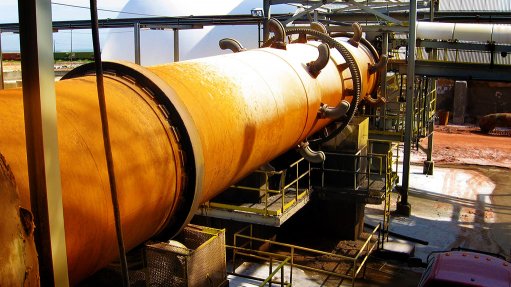
MULTIPLE APPLICATIONS Rotary kilns are used for a range of applications, including waste lime recovery and proppant manufacture
Original-equipment manufacturer of thermal processing, agglomeration and materials handling equipment Feeco International is providing a range of process technology, including thermal processing systems, for several African countries.
Feeco has recently supplied equipment, including rotary dryers, kilns and agglomeration drums to South Africa, Namibia, the Democratic Republic of Congo, Niger, Morocco and other African countries.
Feeco business development manager Brian Madigan tells Engineering News that Africa is certainly a growth area for the company.
He points out that rotary kilns are used for a range of applications, such as waste lime recovery, proppant manufacture, clays production, thermal desorption of organic and/or hazardous waste, mineral roasting, speciality ceramics, plastics processing, metal recovery, electronic waste recycling, gypsum calcination, waste incineration and tyre pyrolysis.
He adds that Feeco manufactures both direct-fired and indirect-fired rotary kilns.
Thermal Process Offering
Meanwhile, Madigan points out that Feeco has been supplying robust thermal-processing equipment since 1951.
“Our designs meet a range of bulk solid materials and processing requirements,” he asserts.
Madigan adds that Feeco supplies high-temperature, refractory-lined kilns for
several applications and industries.
“All of our designs are developed with efficiency, longevity and process flexibility in mind.”
“Our engineering staff can incorporate several high-quality technologies and value-added analyses to ensure that our rotary kilns are to the satisfaction of our customers. We also undertake thorough heat transfer modelling to ensure proper characterisation of fuel consumption and exhaust gas requirements,” he notes.
Feeco can also undertake finite element analysis on rotary kilns to ensure an optimal operational life span, despite the mechanical rigors of the elevated temperatures and large rotating loads to which rotary kilns are subjected.
Madigan adds that Feeco also offers cost-competitive designs for units that process amounts as small as 1 t/h and range in diameter between 61 cm and 91 cm in diameter to larger units of up to 518 cm in diameter that process hundreds of tons per hour.